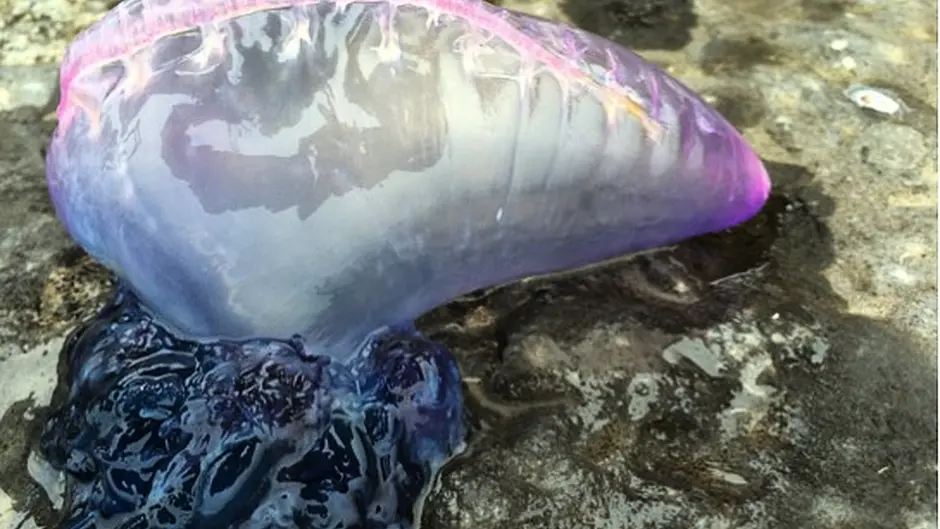IRISH Water Safety is warning the public as a new moon this weekend could bring additional numbers of highly dangerous jellyfish to our coast.
IRISH Water Safety is alerting the public to exercise caution on the coast over the next few days as a new moon will bring with it the prospect of dangerous jellyfish.
The safety authoritiy says the current weather conditions have brought more Portuguese Man O’War jellyfish to our shores than we have seen in over a hundred years.
‘We have experienced tropical maritime air for almost two months now with very little northerly winds, in addition sea water temperatures are approximately 15 degrees Celsius, consequently we have seen one of the largest infestations of the Portuguese Man O’War land on our western seaboard in over a hundred years,’ said a statement.
There is a new moon due this Saturday which will bring spring tides and mean that larger exposed areas of coastline are likely to see these most venomous ‘siphonophores’ – jellyfish – washing in. Surfers, kite surfers, swimmers, kayakers, divers and walkers all need to keep a vigilant eye open for these creatures which give a very strong sting and to some people can cause anaphylactic shock or seizures.
Jellyfish – including the Portuguese Man O’War have been reported them on West Cork shores in recent weeks, mainly in south and south-west facing bays.
There have been reports of in excess of 80 landing on the south harbour in Cape Clear and more at Owenahincha, Barleycove, Long Strand, Tragumna and more.
‘They have been known to kill people, such is the severity of their stings,’ warned a spokesperson. The advice the IWS is issuing includes:
• Ensure you don’t get stung yourself when aiding others.
• Remove any attached tentacles with a gloved hand, stick or towel.
• Do not rub the affected area, this may result in further venom release.
• Rinse the affected area with sea-water (do not use fresh water, vinegar or urine)
• Apply a “dry cold pack” to the area (i.e place a cold pack or ice inside a plastic bag & then wrap this package in a t-shirt or other piece of cloth).
• Seek medical attention if there is anything other than minor discomfort (Please note: The sting can cause anaphylactic shock, if you are feeling unwell go to A&E for treatment).
Members of the public should report the sightings of these two jellyfish to Cork County Council or their local Water Safety Development Officer http://www.iws.ie/contact/area-contacts.212.html
To download a Jellyfish photo identification card and first aid treatment information, click on http://www.iws.ie/beach/jellyfish-safety.321.html









